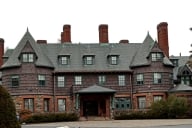You have /5 articles left.
Sign up for a free account or log in.
A regular theme in conservative critiques of higher education is that liberal professors discriminate against right-leaning students. Many faculty members (with studies to back them up) reject the charge. Even if faculty members may lean left, they argue, there is simply no evidence of systematic bias in how students are graded and treated.
A new study in the journal College Teaching suggests that it's possible that some students do perceive bias, but that the reasons may have to do more with their own identities than with anything taking place in the classroom. Notably, the author does not cite his findings simply to rebut the conservative critics, but to suggest that there may be classroom techniques that would lessen the perception of bias.
The study examined 148 female students and 123 male students at a land-grant university in the Southeast where political attitudes among students are fairly evenly split. The students were given two sets of questionnaires -- one on how settled and resistant to change they were (in politics and the rest of their lives) and the other on their perceptions of bias from their faculty members.
The study found that students -- even in the same classrooms -- didn't perceive bias in the same ways (or at all), and those who perceived bias were those who were resistant to changing any of their views. The finding extended to some who identified themselves as being far on the left and resistant to change, and who believed that they had some biased conservative professors. But among both left-leaning and right-leaning students who didn't score high on resistance to new ideas, there was little perception of bias.
Darren L. Linvill, the study's author and director of basic courses in the department of communication studies at Clemson University, said that while his research (including interviews with the students claiming bias) found no evidence of real bias, the findings about perception should be of concern to faculty members.
Many faculty members -- himself included, Linvill noted -- play devil's advocate to many students, expressing a range of views. This time-tested classroom technique, he said, may not work with students who arrive in class determined not to hear new ideas. Linvill said that there may be elite colleges and universities where students arrive as freshmen used to having their views challenged by teachers, and that might still be "an ideal." But he said that the reality he sees from his research is that this is a foreign concept to many entering college students today.
Linvill said he would not abandon devil's advocate approaches, but would be "as blatantly obvious as possible" that that's what's going on. Further, he said that he believes students will become more comfortable with their ideas being challenged if the first challenges come from fellow students -- with the professor, at the beginning, only following. Generally, he said that faculty members need to ease in more gradually to the kind of challenges that some may consider a key element of college teaching.
Further, he said he tends to hold back his own political views (which he describes as moderate), and finds that doing so seems to increase the comfort level of all students with his challenging their ideas.
Linvill said that his ideas come from the realization, when interviewing students who thought they experienced bias, that their feelings were very real but that their evidence was of "insensitive teaching, not politically biased teaching."








